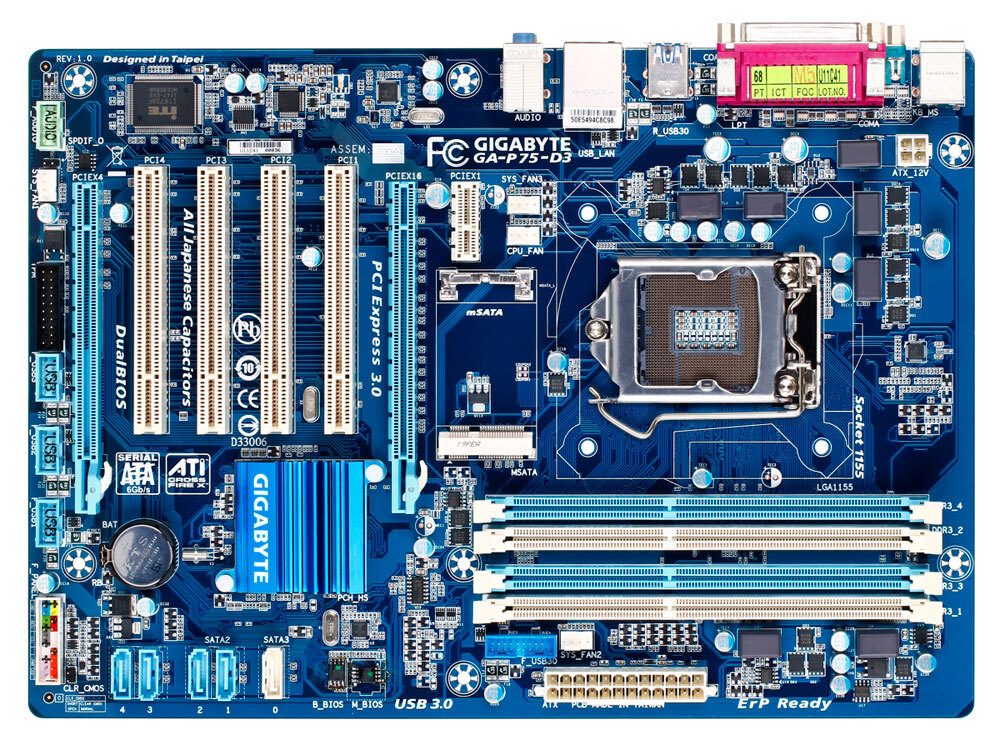Most people don’t really care much about RAM or CPU. They just notice that their computer is suddenly beginning to be slow. And it’s difficult to tell whether it’s because of a virus, slow hard drive, slow internet, a program gone rogue, or that they are running out of memory or CPU.
But what is RAM and how different is it from CPU? How can you tell how much RAM you are using or how much CPU your computer is currently running? And how do you tell if you need to add more RAM or actually optimize it or more processing power?
If your computer is slow, then first rule out that it’s not a virus or malware bogging down your computer. So be sure to run regular virus scans. Also, make sure it’s not an old drive slowing things down or even slow internet or that someone isn’t mining bitcoin or crypto stuff without your knowledge. Otherwise, your efforts to add more memory and computing power to your computer will be fruitless.
Related post: How to Protect Your Computer From Becoming a Crypto-Mining Machine
RAM short for Random Access Memory is a fast memory space where your computer stores data it needs to process. Your pics, documents, videos, music, and what else you have on your computer are stored on the hard drive. But hard drives are still not fast enough. So when you start a program like Microsoft Word, it’s loaded into RAM along with the document you are editing because RAM is faster. The more programs you have opened, the more RAM is needed to store program files.
Chrome is for instance notoriously known to be a RAM hog. Each tab you open on the Google Chrome browser is akin to starting a new Chrome program. Keep 5, 10, or 15 tabs open and you will watch your computer come to a grinding halt.
Related post: Why Chrome takes up so much RAM and what you can do about it
RAM is mostly measured in GBs at least for personal computers. A conventional computer these days has at least 4GB of RAM which is optimal if all you want is word processing, excel sheets, watch movies, play music, web and email browsing. But if you are a graphics designer running Photoshop, a developer writing code, or a professional running specialized applications, then 8-16GB is what you are looking for.
You can find your computer’s RAM capacity from the computer’s specifications. This is usually mentioned in the product page of the computer model usually listed on the manufacturer’s website or e-commerce product pages. On Windows PC, you can find out your computer’s RAM capacity by opening Windows File Explorer or going to My Computer, right-click and selecting properties. You’ll see RAM listed along with your computer’s processor.
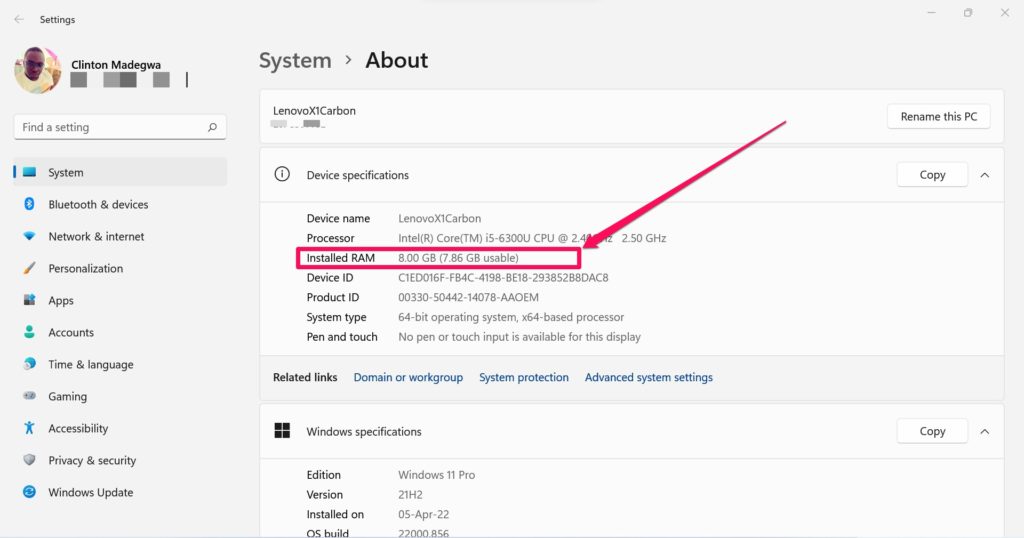
You can also tell your computer’s RAM usage by going to the Task Manager on Windows and clicking on the Memory tab.
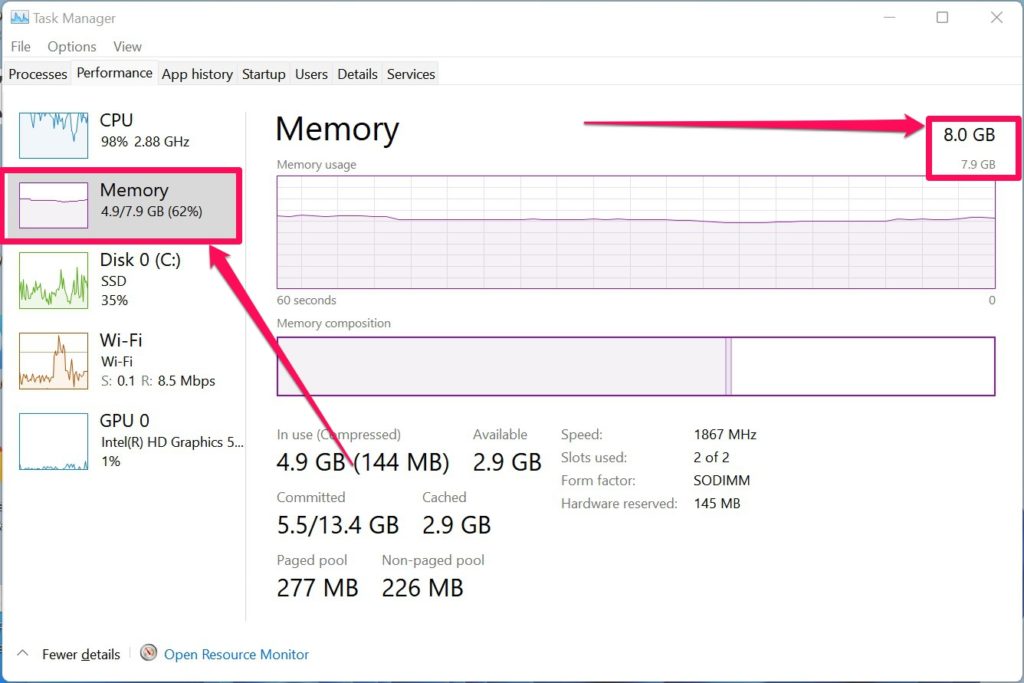
Now CPU short for Central Processing Unit is what your computer uses to make calculations or instructions. The more calculations your computer is able to perform in a specific time, the faster it is. Most programs that run on personal computers aren’t hard on the CPU. But if you are involved in anything like 3D modeling, video conversion and compression, data mining, Image Editing in programs such as Photoshop or Scientific modeling, then be prepared to invest more in a computer with higher CPU specs. Gaming specifically is very CPU intensive. So if you’re a gamer, you need a serious CPU. Sometimes, that’s not even enough, you need a dedicated Graphics Card or GPU designed specifically for these kinds of CPU intensive workloads.
CPU is measured in GHz. The most popular CPU brand is intel and more specifically intel i series is what runs on PCs. The intel core i3 7th generation has 2 cores making it ideal for conventional computer usage, but more CPU-intensive programs need core i5 or i7 which comes with 4 cores.
Related post: 8th gen Intel Core i3, i5, i7: Double core count, increased cache and better DDR4 support at a sweet price
You can tell what processor is running on your computer by clicking opening Windows File Explorer, then clicking on This PC, and then right-clicking and selecting Properties. You should see your computer’s CPU model and specs.
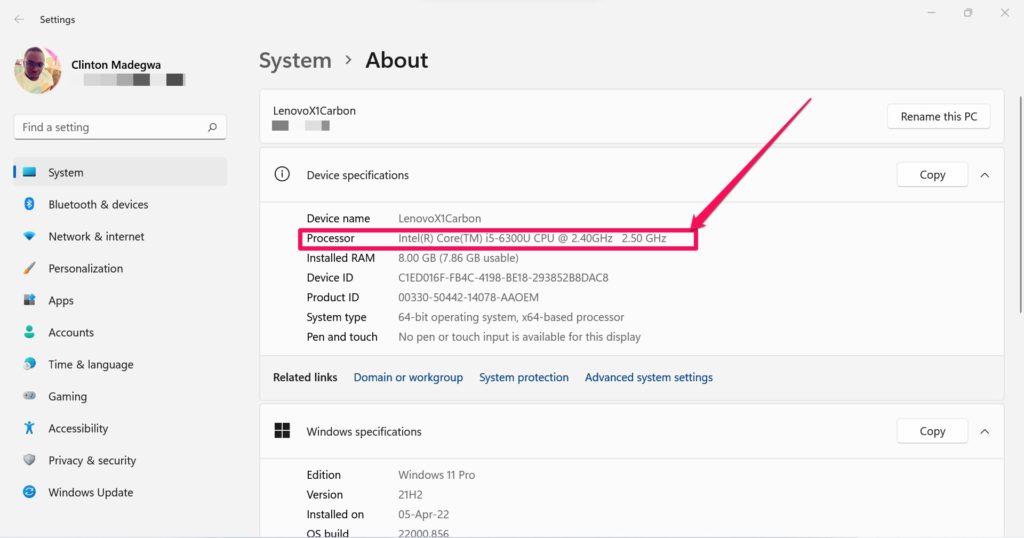
You can tell how much CPU your computer is currently using by clicking on the task manager and selecting the CPU tab.
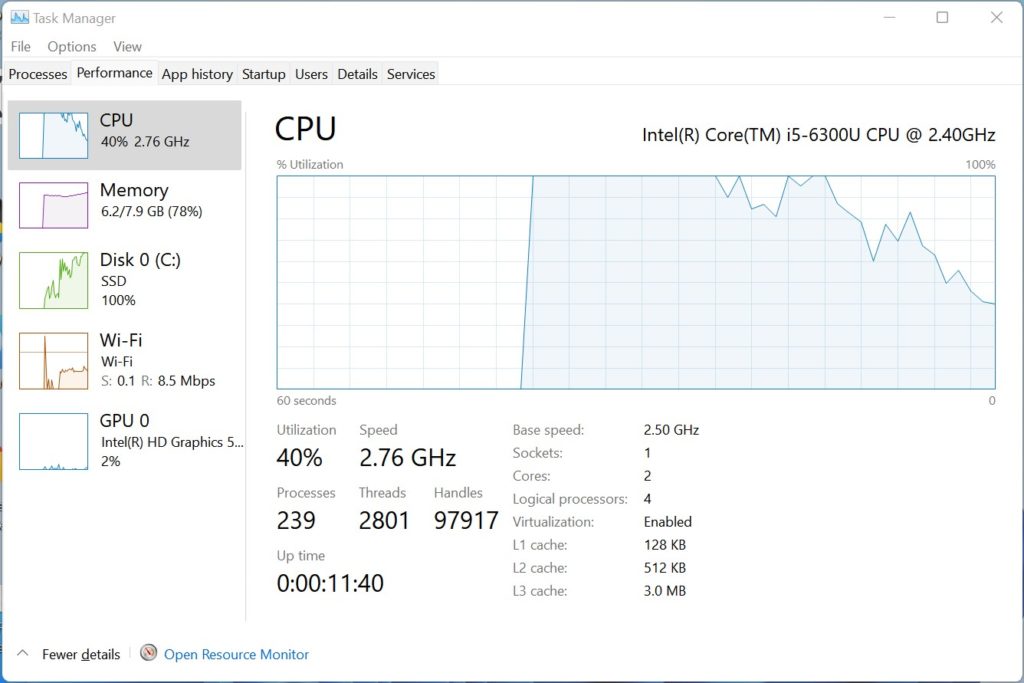
In Summary,
- More RAM means you can multitask several programs
- More CPU means you can run more complex calculations/operations
In most cases, you will need more RAM which thankfully is upgradable in most computers. You simply have to know the maximum RAM your computer can take. This is dictated by the motherboard and the processor it’s running on. Other computers especially Macbooks and Macs don’t ship with upgradable RAM capabilities. So you have to know your memory requirements prior to spending your hard earned dollars.
Read more: Computer RAM Upgrade: How to find compatible RAM for your PC
CPUs are not easily upgradable. So you want to do your homework before you settle for specific processor specs, otherwise, you will be stuck with it for the lifetime of your computer. If you want to have upgradable CPU in your computer, you might have to build it yourself. This is mostly reserved for geeks and enthusiasts who like to independently source for parts and components from various vendors.
Most Gaming rigs are built this way. You can get a motherboard from say Gigabyte Technology or MSI or Asus. Then you can get your preferred CPU from Intel or AMD, RAM from Corsair or Crucial, Storage from Seagate or Western Digital, and Computer case from Antec or Corsair and you have a custom, upgradeable computer. This is an art and a science and is better left to the nerds who have specialized knowledge in custom PC building. This is limited to PC, you can’t do this with Mac computers.
Discover more from Dignited
Subscribe to get the latest posts sent to your email.


